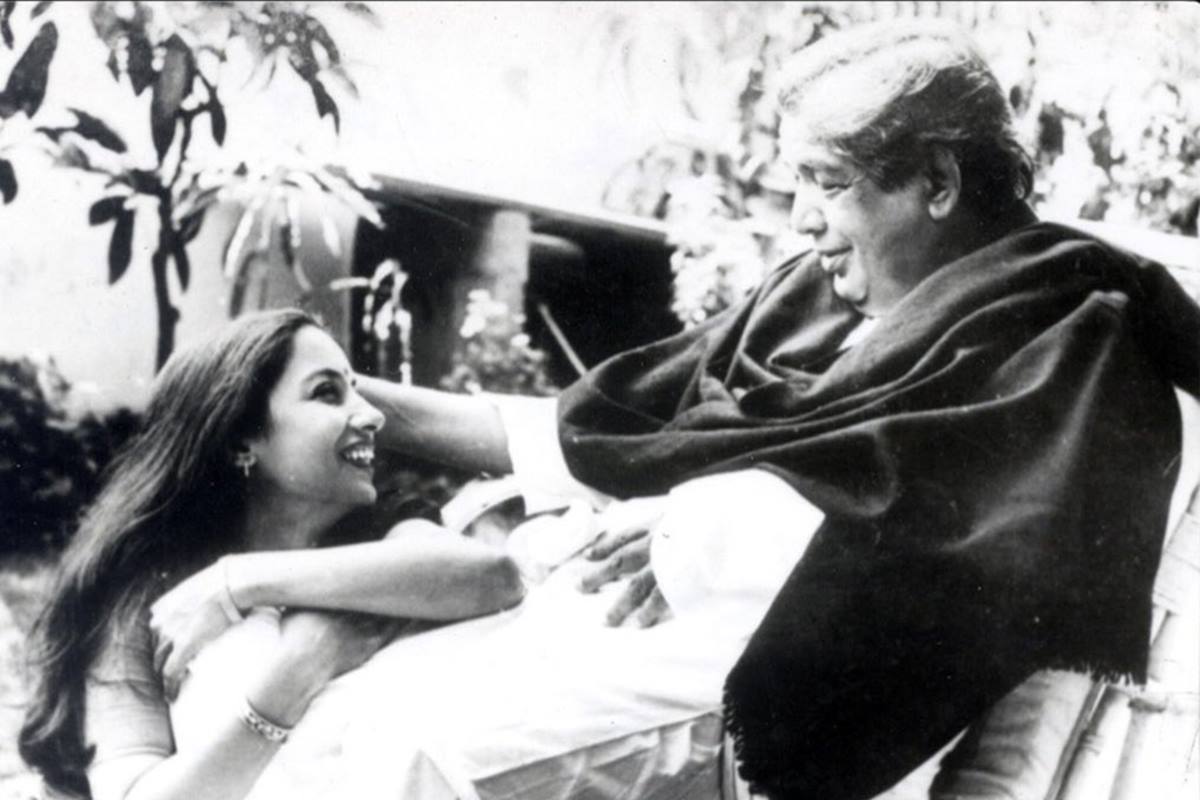Shabana Azmi unmasks ‘truth’ behind Kangana-Javed truce: “She apologized”
After the settlement, Kangana surprised everyone by sharing a photo with Javed Akhtar from the court. She even announced a possible professional collaboration.
Shabana Azmi pays touching tribute to father Kaifi Azmi on his 104th birth anniversary, celebrating his profound impact on Urdu poetry in Indian cinema.
Statesman Web | January 14, 2024 6:27 pm

Celebrating the 104th birth anniversary of the legendary Indian Urdu poet, Kaifi Azmi, Shabana Azmi took a nostalgic journey down memory lane, sharing heartfelt tributes on her social media.
The acclaimed actress posted an endearing black and white photograph, capturing a moment in time where Kaifi lovingly placed his hand on Shabana’s head. Accompanying the image, Shabana revealed a lesser-known facet of her father, expressing, “Abba… few know how funny you were ❤️❤️ or that you succeeded in fooling me year after year on 1st April.”
Advertisement
Abba .. few know how funny you were ❤️❤️or that you succeeded in fooling me year after year on 1st April pic.twitter.com/T8q1hCwBxt
Advertisement
— Azmi Shabana (@AzmiShabana) January 14, 2024
In another post, Shabana shared a simple yet poignant black and white photo of her father, addressing him as ‘Abba,’ accompanied by a single red heart. These posts serve as a touching tribute to the man who not only held a significant place in Shabana’s heart but also played a crucial role in shaping Urdu literature’s presence in Indian cinema.
Abba..❤️ pic.twitter.com/38utG9OM8V
— Azmi Shabana (@AzmiShabana) January 14, 2024
Born Athar Husain Rizvi on January 14, 1919, Kaifi Azmi’s influence extends beyond his role as a poet. Recognized for his pivotal contribution in bringing Urdu literature to the silver screen, he participated in iconic Mushaira gatherings alongside luminaries such as Pirzada Qasim and Jaun Elia. Hailing from a family of artists, Azmi’s legacy was deeply intertwined with the rich tapestry of Urdu poetry.
During the tumultuous Partition, Kaifi Azmi found himself underground in Aurangabad, evading the scrutiny of British authorities due to his affiliation with the Communist Party. His family embarked on a journey from Bombay to Karachi, leaving Kaifi to navigate the challenges alone. Emerging later, he found the ship had sailed, marking a poignant chapter in his life.
Initially, Azmi’s poetic repertoire revolved around ghazals, filled with themes of love and romance. However, his association with the Progressive Writers’ Movement and the Communist Party catalyzed a shift towards socially conscious poetry. Notable works like “Aakhir-e-Shab,” “Sarmaya,” “Awaara Sajde,” “Kaifiyaat,” and “Nai Gulistan” reflected this transformation.
Azmi’s literary contributions extended to anthologies, articles for Urdu Blitz, film lyrics, and even the script of “Heer Ranjha.” His iconic poems, including “Aurat,” “Makaan,” “Daaera,” “Sanp,” and “Bahuroopni,” have left an indelible mark on the realm of Urdu literature.
As Shabana Azmi fondly recalls her father on his birth anniversary, the tributes stand as a testament to the enduring legacy of Kaifi Azmi – a poet, visionary, and a stalwart who bridged the worlds of poetry and cinema, leaving an indomitable imprint on both.
Advertisement
After the settlement, Kangana surprised everyone by sharing a photo with Javed Akhtar from the court. She even announced a possible professional collaboration.
Actress Shalini Pandey reflects on working with legendary star Shabana Azmi in the popular series 'Dabba Cartel.'
Reiterating her commitment to strengthen the Bahujan Samaj for their "social change and economic liberation ' across the country, Bahujan Samaj Party ( BSP) chief Mayawati on the birth anniversary of the party's founder and her mentor Kanshi Ram on Saturday again raised the issue of Caste Census.
Advertisement
